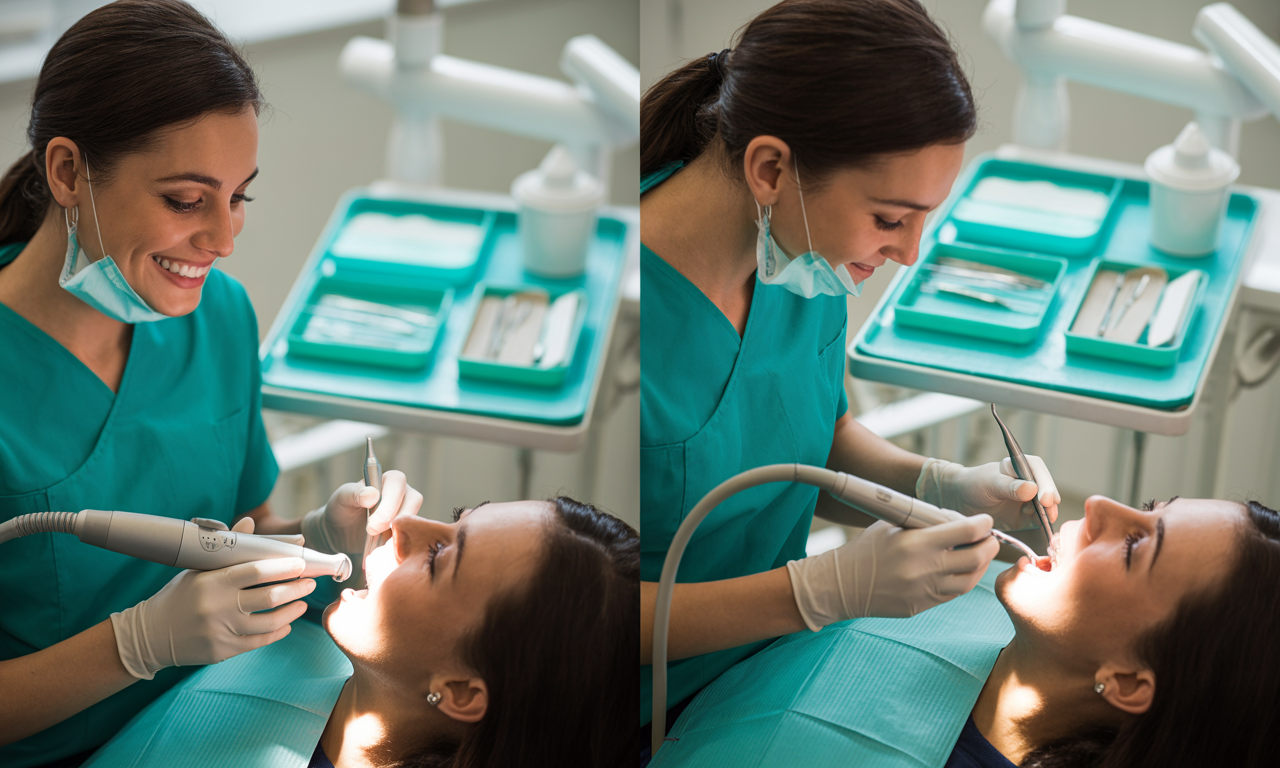Let’s be real—most people think dental cleaning is just a twice-a-year thing where you sit back, hear a few unpleasant whirs, and walk out with sparkly teeth. But there’s more to dental maintenance than your routine cleaning. For patients with gum disease or significant tartar buildup, deep teeth cleaning might be the key to saving their smile.
This blog is your ultimate guide to understanding the difference between deep teeth cleaning and regular cleaning. It’s especially relevant if you’ve ever been told you need “scaling and root planing” and stared blankly in response. Don’t worry—we’ve got you covered.
TLDR – Quick Guide
- Regular cleaning is preventive care—think: brushing, flossing, and a professional polish every 6 months.
- Deep teeth cleaning is therapeutic care—designed to treat gum disease and remove tartar buildup below the gum line.
- Deep cleaning is also called scaling and root planing.
- Regular cleanings keep healthy gums healthy; deep cleanings help unhealthy gums recover.
- Your dentist determines which you need based on pocket depth and gum health.
Detailed Breakdown
What Is Regular Dental Cleaning?
Also called prophylaxis, a regular cleaning is what most patients get every 6 months. It focuses on:
- Removing plaque and tartar from the surface of the teeth.
- Polishing your teeth to remove stains.
- A quick checkup for cavities or early signs of gum disease.
It’s ideal for:
Patients with healthy gums and no signs of periodontal disease.
What Is Deep Teeth Cleaning?
This isn’t your run-of-the-mill dental polish. Deep teeth cleaning, or scaling and root planing, goes below the gum line to treat early-stage gum disease (gingivitis) and more advanced cases (periodontitis).
It involves:
- Scaling: Removing plaque and tartar from below the gum line.
- Root Planing: Smoothing the tooth roots to help gums reattach and heal.
It’s ideal for:
Patients with gum pockets deeper than 4mm, bleeding gums, or signs of periodontal disease.
How Do You Know Which One You Need?
Dentists assess your gums using a periodontal probe to measure pocket depth around your teeth. Pockets deeper than 3mm may indicate gum disease.
Your dentist at Asta Dental will also consider:
- Bleeding while brushing or flossing.
- Gum recession or inflammation.
- X-ray results showing bone loss.
How Long Does Each Take?
- Regular cleaning: 30–60 minutes.
- Deep cleaning: Typically done in two visits (one for each side of the mouth), each taking 45–60 minutes.
Cost Difference?
- Regular cleaning: More affordable, and often fully covered by insurance.
- Deep cleaning: Costs more due to the complexity and time involved. May require follow-up appointments.
Key Takeaways
- Regular cleaning is preventive; deep cleaning is corrective.
- Deep teeth cleaning is essential if you have signs of gum disease.
- Both types of cleanings play a vital role in maintaining long-term oral health.
- Trust your dentist’s evaluation—early intervention is always better.
- Deep cleaning might feel intense, but it can prevent tooth loss and other serious issues.
FAQs
- Is deep teeth cleaning painful?
Not typically. Dentists use local anesthesia to numb the area, so discomfort is minimal. You might feel sensitivity afterward, but it usually subsides in a few days. - How often do I need deep teeth cleaning?
Only when gum disease is present. After treatment, you may be put on a periodontal maintenance schedule (every 3–4 months) rather than the standard 6-month routine. - Can I avoid deep teeth cleaning with good brushing?
Brushing and flossing are crucial, but once tartar builds below the gum line, only a professional can remove it. Good home care prevents the need for deep cleaning but doesn’t replace it. - What happens if I skip deep teeth cleaning when recommended?
Ignoring the recommendation can lead to worsening gum disease, which can result in bone loss, loose teeth, and even tooth loss over time. - Does insurance cover deep teeth cleaning?
Many insurance plans offer partial coverage, especially if your dentist documents periodontal disease. Check with your provider for specific details.

